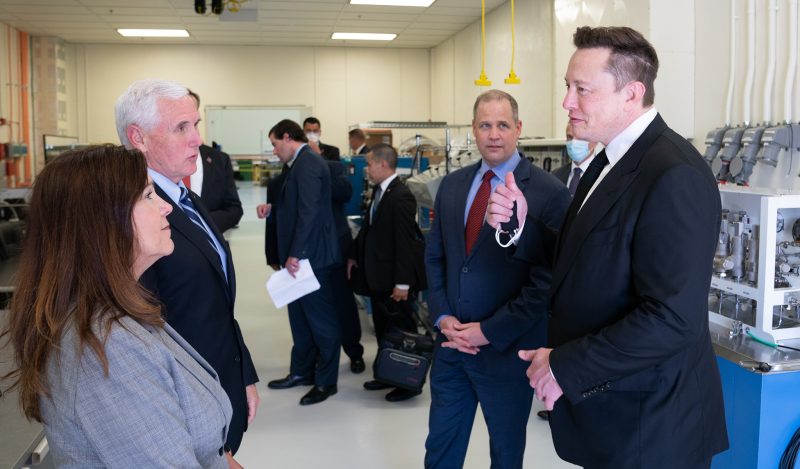In April 2022, Elon Musk announced he was buying Twitter and was going to enforce the First Amendment of the US Constitution that enshrines free speech. That announcement was like a declaration of war on Big Tech, Big Pharma, and the other powerful interests that had grown richer by means of lies (and associated products and services) that they managed to sell to the population with the help of censorship.
The announcement that a truth offensive was about to be launched understandably sent shock waves through the political establishment in the US and elsewhere. Three months later, Musk announced he wasn’t going to buy Twitter after all, and the political class probably sighed with relief that true free speech would remain a bit player in the media landscape.
But can Elon really just walk away from the challenge he set himself in April? ‘Officially,’ it’s over, but we are not totally convinced, and the arguments on both sides boil down to judgment calls about how the politics will play out. Here we lay out the reasoning on each side of the bet.
Witness for the prosecution: He can’t walk away
When Musk announced his intended purchase of Twitter on April 14th, fearful elites sprang into action almost immediately. Elon was soon summoned to appear in the UK before a parliamentary committee to explain what exactly he meant by ‘free speech.’ The European Union was quick to announce that it would hold Twitter to lots of content rules and might close the platform down if it didn’t comply.
You could smell the existential fear in those reactions. Twitter employees themselves staged a virtual strike and Twitter management set up barriers to the takeover bid. All these maneuvers were shots across the bow: warnings from an entrenched class of international habitual fibbers that bristled at the idea of truth rearing its head on the mainstream airwaves.
Musk pushed on, and, crucially, brought in allies. His detailed plans for the takeover of Twitter in May revealed that Morgan Stanley and Goldman Sachs were supporting the bid, together with a whole bunch of investors and private equity firms. With more than just Elon’s skin now in the game, a fearful political elite knew they were under attack from an even more formidable coalition.
While the also-ran banks and advisors might slink away, feigning ignorance and only lukewarm real interest, history tells us that the ringleaders of such open rebellions cannot be allowed to get away with it.
By showing up with allies, Elon displayed a genuine willingness to organise against the political elites. This will have committed them, in turn, to his downfall, in order to protect against future moves by him or by copycats. Regardless of whether or not Elon was only doing all of this as a prank, he was seen to challenge and seen to organise resistance. That is enough to make it extremely important to take him down. At a minimum, Elon must be seen to be heavily punished for his temerity.
What evidence can we find in the last few months of such punishment being doled out by the establishment?
First, the legal system was weaponized. In May, the 2018 allegations of sexual impropriety at Tesla and SpaceX were warmed up again, leading to a spate of additional investigations and ‘outings’ on the workplace culture of Elon’s companies, of course leading to a major lawsuit. Regulators also doubled down on their long-running investigations into the safety of Tesla cars, expanding their remit in June. Also in June, Musk and his companies were sued for $258 billion supposedly because of Dogecoin.
Then of course there were the negative media stories about him. In May, it was revealed he’d paid off a flight attendant whom he apparently hit on in 2016. Also in May, the stock exchange demoted Tesla in the virtue-signalling document known as the Green List, or the ESG Ratings.
Elon was also hit where it hurts, close to home. In June, one of his children filed for a change of name – from Xavier Musk to Vivian Wilson, jettisoning both the name and the gender the child previously shared with Musk – and announced a desire to have nothing to do with Dad. Surely that family conflict was brewing long before April, but the timing and vehemence of the public statement look suspicious, to say the least. One has to wonder who has been riling that kid up over the last few months. The media fury aimed at Elon certainly will not have helped.
In short, the hounds have indeed been released, and are sniffing around for weaknesses wherever they may lurk.
What does the market say? The Tesla share price was $1,145 per share on April 4th, but has dropped to $730 or so per share at the moment, almost a $400 billion drop in market value. Elon seems to have paid a heavy price already for his moment of rebellion. Now that he has revealed his willingness to organise against the elites, the hounds will keep going after him in every way they can.
If it is true that his opponents cannot afford to let him get away with announcing an insurrection and walking away unscathed, then Elon cannot truly walk away from the fight. If he does, he will simply be torn apart. Hence, Elon must stay in the game, and stick with the free speech fight he started.
Witness for the defence: Oh yes he can walk away, and that’s exactly what he’s doing
Billionaires have lawsuits and allegations against them just like dogs have fleas. The events of the last few months are probably nothing special in the life of Elon Musk: if no one is threatening his company and person with oblivion, it has been a slow month.
He didn’t get to be the richest man in the world without knowing how to play the political game, and he has made enough continuing investments to remain secure. In particular, he is plugged into parts of the elite world that will want to continue to work with him, and thereby push against the other parts that fear him.
For one, Elon Musk openly revealed in June that he voted Republican and is a fan of Ron DeSantis, meaning that he has switched party loyalties from Democratic to Republican. Crucially, he is openly aligned with one of the major parties, which buys him political protection. If the going now gets too tough in California, he can threaten to move his factories to Florida to be under the protection of DeSantis, something that almost forces the political elites in California to help him with his current legal and regulatory troubles, even if they hate the guy.
Also, Musk has long been a player in the elite networks involved in US financial regulation, as revealed by the acceptance of cryptocurrencies by the Federal Reserve in early 2022. The reason why is open for debate, but our reading of the situation starts with the recognition that the crypto market effectively runs as a gambling tax on people speculating in a digital asset, while the real money is made on the transaction costs involved in buying and selling, a scam perfectly explained in that famous movie scene in The Wolf of Wall Street.
Via PayPal and Dogecoin, Elon profits from the hordes of suckers who believe they know when and which way crypto values will move, and buy and sell their digital assets accordingly. Every time someone buys into or out of the crypto markets, they pay an overhead fee of somewhere between 0.5% and 4% (the transaction fee paid by bitcoin miners is minimal, which may be trumpeted by proponents but misses the real gig: PayPal itself explains it charges 0.5% per crypto transaction, as just one of its fees).
In crypto land, as in many trading markets, this is what keeps the trading platforms in business, and explains who pays for the advertisements we’ve all seen that egg on the gamblers to enter the game. Elon Musk is the smart guy making money off of the hopeful.
What’s more, the US Feds appear to be helping him. We think it’s quite likely that the Feds worked out that gamblers around the world were losing money to an American via their crypto trading activities – and, crucially, that they rather approved of that transfer of money to the US and hence let it roll. This bound them somewhat to Musk.
Now that the crypto market has weakened, that love affair will cool a bit, but the basic deal is still there: the quick-rich hopefuls of the world will still be losing money to the US via their crypto gambling, and as long as that global taxation continues, even at a reduced rate, Elon will have some protection from the Federal Reserve.
Perhaps even more important than his connections to the Republicans and high finance, Elon Musk has ingratiated himself with the US military establishment, most notably by sending Ukraine a lot of Starlink disks via which they can more securely communicate and remote control things.
The US security establishment will want to keep that productive relationship going, and will also not be particularly bothered by the threat that free speech on Twitter poses to Big Pharma or to some current politicians: they would see this merely as an in-house tiff between different allies of the security establishment.
In fact, the security establishment has a natural reason to want to avoid anything that clearly weakens the US, like lockdowns, so will have some natural affinity with Elon’s stance anyway.
Yes, a case can be made that the hounds have been released on Elon and that they won’t be called back because overt rebellion must be seen to be punished, lest he try again or others are encouraged by his example. But Elon has successfully powered through a lot of threats already, and seems to have locked in many new political alliances that can help tide him over during threats like those he presently faces. If he now lays low enough, he will eventually be forgiven.
The ruling
We just don’t know which of the above two depictions is more accurate. Unfortunately, top politics nowadays is such an insider game, with so much deliberate dismisinfoganda flooding the airwaves available to us plebs, that we have no way of knowing whether the knives are still out for Elon and hence whether or not he must continue his fight. Only time will tell.
Join the conversation:


Published under a Creative Commons Attribution 4.0 International License
For reprints, please set the canonical link back to the original Brownstone Institute Article and Author.











